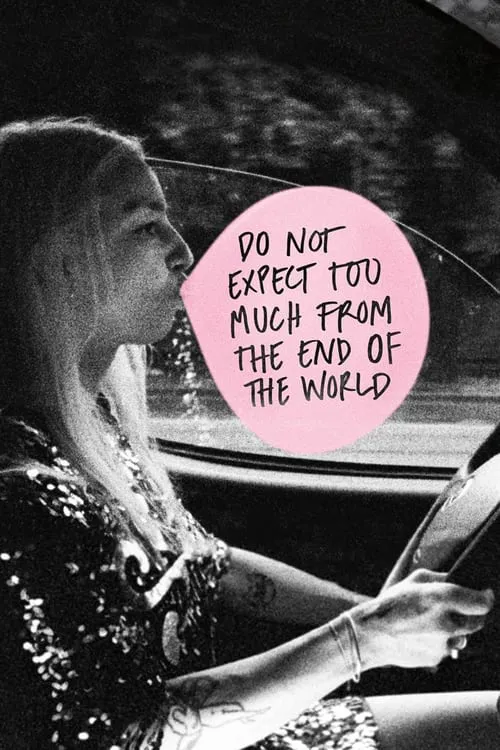Do Not Expect Too Much from the End of the World

Plot
In a seemingly mundane, almost satirical take on the notion of corporate responsibility, the Romanian film "Do Not Expect Too Much from the End of the World" delves into the lives of the underprivileged and the working class, shedding light on the stark realities of life in Bucharest. The movie, which translates to "Să nu te așteptați la multe de la sfârșitul lumii" in Romanian, expertly navigates the nuances of modern life, raising thought-provoking questions about the human condition. Cristi, a driven albeit somewhat detached production assistant, is tasked with the responsibility of finding the perfect candidate for a high-profile advertising campaign on behalf of a multinational company. As he scours the city in search of the ideal individual, Cristi encounters a multitude of individuals who have been severely injured due to accidents in the workplace. The company is eager to use one of these tragic stories to emphasize the importance of workplace safety in a series of promotional videos, a tactic Cristi is more than happy to assist with. As Cristi embarks on his mission, he is met with the harsh realities of life on the fringes of society. He comes across Vlad, a desperate man left crippled as a result of a devastating construction site accident. Vlad's life is one of struggle, as he navigates the difficulties of supporting a family with limited means. Despite the odds, Vlad's resilience and strength serve as a testament to the human spirit's capacity to persevere in the face of overwhelming adversity. Next, Cristi interviews Andrei, a rugged individual who lost a limb in a logging accident. Andrei's narrative is a tragic reminder of the callous disregard companies often exhibit towards their employees' well-being. In a particularly disturbing turn of events, Cristi reveals to the viewer the shocking lack of safety measures employed by Andrei's former employer. This stark revelation underscores the often-collusive relationship between corporate interests and the governments they lobby. As Cristi continues to search for the perfect candidate, he comes across Ana, a young woman who suffered severe injuries in a factory accident. Ana's narrative is a poignant portrayal of a life derailed by circumstance and chance. Her desperation, which serves as a counterpoint to the cold, calculating nature of corporate decision-making, underscores the tragic human cost of neglecting workplace safety. Throughout his journey, Cristi finds himself increasingly disconnected from the world around him. His motivations, though initially driven by a desire to do the right thing, soon become clouded by ulterior motives. As the stakes grow higher, Cristi becomes ensnared in his own web of deception, caught between his duty to find the ideal candidate and his growing sense of unease. Ultimately, it is Cristi's introspection and grappling with the complexities of his mission that elevate the narrative of "Do Not Expect Too Much from the End of the World" to something far more profound. As he wrestles with the consequences of his actions, Cristi's character becomes a microcosm of the larger societal issues at play. The film's exploration of the dissonance between corporate interests, the state, and the individual is both unsettling and thought-provoking. Through Cristi's search for the perfect candidate, "Do Not Expect Too Much from the End of the World" exposes the dark underbelly of a society where the struggles of the underprivileged are frequently subsumed by the imperatives of profit and growth. By humanizing the stories of those who suffer at the hands of neglect and exploitation, the film challenges viewers to confront the uncomfortable consequences of a culture that prioritizes the bottom line over human life. The film's nuanced portrayal of its characters serves as a masterful critique of the societal ills that perpetuate inequality and injustice. By shining a light on the often-overlooked struggles of those on the margins, "Do Not Expect Too Much from the End of the World" reminds viewers that the end-of-the-world scenarios often relegated to sensationalized media spectacles are, in reality, a constant, ever-present reality for many.
Reviews
Recommendations




